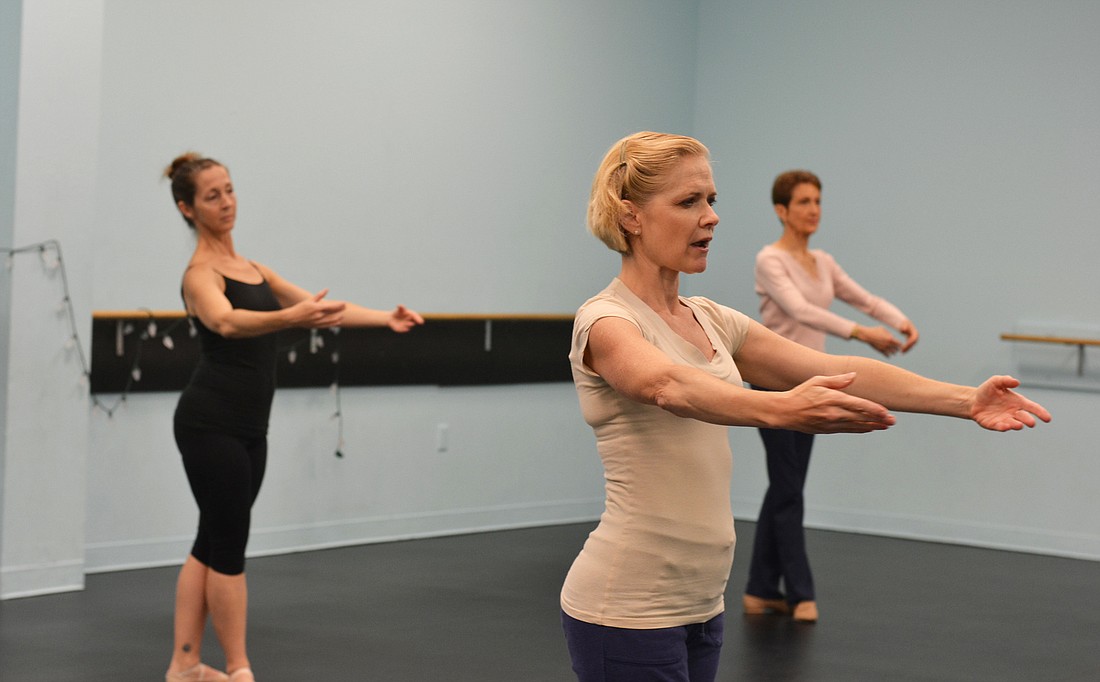- March 20, 2025
-
-
Loading

At the age of 5, Alice Fox Stahlschmidt fell in love with ballet the same way many are introduced to the art form — seeing “The Nutcracker.”
Somewhere between Tchaikovsky’s “Waltz of the Flowers” and the “Dance of the Sugar Plum Fairies” Stahlschmidt told her mother that’s what she wanted to do.
Since then, Stahlschmidt, 50, has taken every form of dance she could, from ballet to folk to Argentinean tango lessons. After a brief career working with community dance companies, she began teaching. Now, she focuses on making ballet accessible to adults at Soul Studios in the Pinecraft area of Sarasota.
Some have performed for community-level ballet companies; others are beginners.
“It’s an art form for me, and I think it’s for everyone,” Stahlschmidt said. “It doesn’t matter when you start. Whether you start at 5 or start at 80, it doesn’t matter.”
The art form typically brings to mind visions of young children or professional dancers in stiff tutus, but Stahlschmidt takes joy from those expectations being subverted.
“For me, as I’m getting older, I want to see older people keep going and doing it,” she said. “They get so much enjoyment out of it. Dance is such a wonderful way to express yourself and stay healthy.”
Among the students is Lynda Doery. At 75, she considers herself a life-long dancer. She’s danced since the age of 8, when she wanted to emulate ’40s movie star Betty Grable. Doery taught dance for more than 40 years and had a career performing for local theaters in Massachusetts and New Hampshire. She also serves on the board of directors for the Sarasota Ballet.
“It’s a way of life for me,” Doery said. “I do it because my body asks for it.”
When she can’t take a class, she uses the chairs in her dining room as a ballet barre.
Balance and flexibility are the biggest benefits students tout from taking classes. The class is open to students of all levels of experience.
Stahlschmidt works around existing injuries students have by avoiding leaps and jumps in her routines. For beginner dancer Myra Gentile, 62, ballet is her attempt to work through a shoulder and neck injury. The slow movements in ballet let her regain some flexibility.
“On the grand plies, I don’t go all the way down,” Gentile said. “Alice does a great job of working with everyone’s limitations.”
Posture and memory are among the other benefits for all dancers. Stahlschmidt says routines test dancers’ memories, asking them to recall sequences and warmups.
Student Mona MacPhail, 69, still dances with arthritis in her knee and a recent foot injury. MacPhail has danced on and off throughout her life. She approaches routines gingerly with her previous injuries in mind, but she’s not giving up on ballet.
“It’s a way to stay toned, stretch and balanced all to beautiful music,” MacPhail said. “I get to use my whole body with the music.”